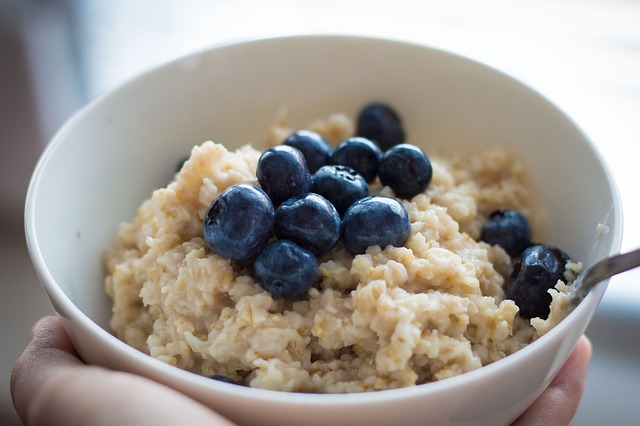A No-Nonsense Guide to Food for Runners
It always amazes me how complex some publications make finding the right food for before and after running sound. There are some reasonably simple ‘rules of thumb’ for this. What you’ll find is that these are often buried deep beneath complex-sounding recipes involving the fashionable ingredients of the day.
This page is a guide to the basics of eating before and after a run.
There are several types of running workout. These range from long distance runs, which can be anything from a 10k to a Marathon, through to short-intensive sprints, gentle jogs and even mid-distance treadmill workouts. Here I focus on the mid to longer distance runs. I’ll also assume that you are at least reasonably motivated to eat a balanced and heathy diet!
Eating Before a Run – Core Principals
There are two main things to keep in mind when eating before a longer run.
First, you really don’t want to feel bloated, gassy or have an unsettled stomach during your run. Second, to prevent tiredness, you’ll want to provide enough fuel for your body to see you through the race.
Foods to Avoid: However wonderful a recipe on a hardcore running website sounds, the day of a race is not the time to start experimenting! If you see a list of ingredients that you have not tried before, then try them during your training first. You should also avoid foods with high processed sugar content and high GI carbs like white bread. These might give you an initial boost, though will not last for long enough to see you through a longer run. Lactose based foods (milk, cheese, yoghurt) can cause an unsettled stomach if eaten too soon before you train.
Foods to Eat: During a run, your body will burn through a lot of energy in the form of glucose in the cells and then stored glycerol (this is how your body stores excess carbs). Many runners load up on carbs in the weeks leading up to a race. The danger with this is that you over do it, ending up with extra weight as your body stores those excess carbs as Glycerol. Carbs with a low Glycemic Index are ideal on the day of the race. These release their stored energy slowly, keeping you fuelled for a longer time. Examples include oats, lentils and grainy bread.
When to Eat Before a Run
Your last full meal should be between 2 and 4 hours before you run. Running on a full stomach (even full of healthy food) can be very uncomfortable. If you have a lighter snack (for example a banana), make sure this is at least 30 minutes to 1 hour before the start time.
Individuals do vary. The ideal time to find out what works for you is during training – and not on the day of a race.
Eating After a Run – Core Principals
A long or mid-distance run can take its toll on your body in several ways. You’ll want to replace the carbs and even protein lost while running. You may also want to reduce inflammation and give your immune system a boost with different types of food. You also need to set a schedule for eating, especially after a longer run. This will not only restore the nutrients you lost, it will prevent cravings for ‘bad’ foods later in the day.
Foods to Eat: You’ll need to replace carbs and protein. Runners recommend a ratio of between 3 to 1 (3 grams of carbs for each gram of protein) and 4 to 1 during the first 60 to 90 minutes after a race. The minimum suggested portion size is 1 gram of carbs for every 1kg of body weight. At this point higher GI carbs are not as bad as before the race. These break down quickly, giving you an energy boost. Keep in mind that you will also need to rehydrate. Water is best here, though natural (not processed) fruit juices can also help.
Foods to Avoid: An ebb in energy levels following a long run can lead to cravings for sugar. Your best strategy is to plan for this in advance. This will help you to avoid reaching for that processed and sugar loaded snack food. Plan to eat every 2 hours, and prepare healthy snacks which are rich in low-GI carbs and natural ingredients. You’ll find some great examples on this page.
Inflammation can be reduced by eating foods such as walnuts and avocado. If you create snacks using these along with healthy carbs, you’ll recover fast.
Eating Before and After a Run – Summing Up
Beneath the lists of fancy ingredients, you’ll find the basics of eating and running are really quite simple. First, do your experimentation during the early training sessions and not before a race. Second, load up on quality, low GI carbs before you run (though not too long before or immediately before the start). After you complete your training, quality carbs and protein – along with healthy anti-inflammatory ingredients are what you’ll need to recover fast.





